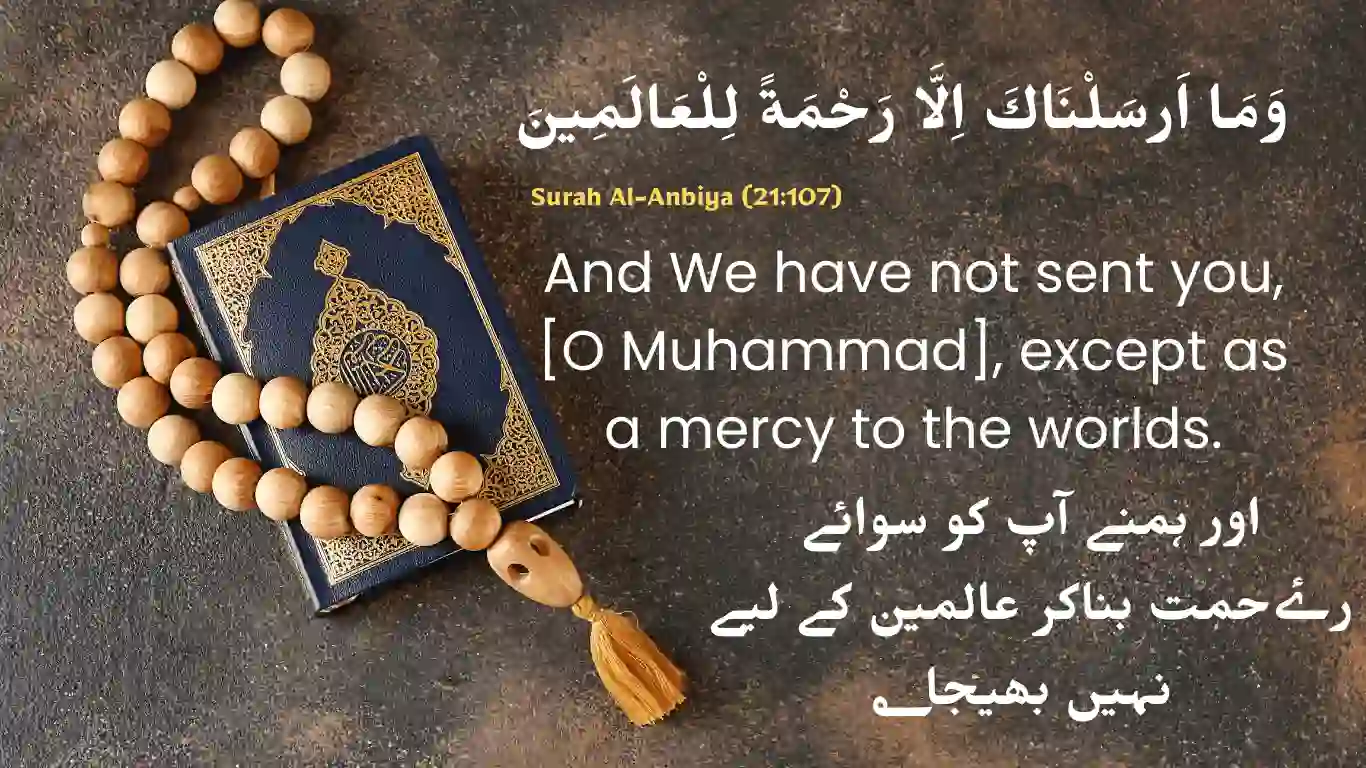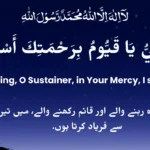The phrase Wama Arsalnaka Illa Rehmatallil Alameen is a profound statement from the Quran, showcasing the role of Prophet Muhammad (PBUH) as a universal mercy. This verse reflects Islam’s emphasis on compassion, peace, and care for all creation. In this article, we will explore the meaning, context, and lessons of this verse, along with its Arabic text, and English and Urdu translations.
| Surah As-Saff- Nasruminallah Wa Fathun Qareeb |
| Dua- Allahumma Inni As’aluka Hubbaka |
| Rabbana Taqabbal Minna Innaka Antas-Sami’ul |
| Surah Falaq & Surah Nas | Divine Protection |
Full Arabic Verse with English and Urdu Translations
The phrase is part of Surah Al-Anbiya (21:107) in the Holy Quran:
Arabic Text
وَمَا اَرسَلْنَاكَ اِلَّا رَحْمَةً لِلْعَالَمِينَ
English Translation
“And We have not sent you, [O Muhammad], except as a mercy to the worlds.”
Urdu Translation
“اور ہمنے آپ کو سوائے رۓحمت بناکر عالمین کے لیے نہیں بھیجا،”
This verse beautifully captures the essence of Prophet Muhammad’s (PBUH) mission: to bring mercy, guidance, and harmony to all creation—humans, animals, and the environment.
Understanding “Rehmatallil Alameen”
1. Mercy (Rehmat)
The term “Rehmat” conveys compassion, kindness, and forgiveness. It reflects the boundless love Allah has for His creation and how Prophet Muhammad (PBUH) exemplified these qualities in his life.
2. Worlds (Alameen)
“Alameen” refers to all realms of existence: humanity, animals, nature, and the unseen. This universality highlights that Prophet Muhammad (PBUH) was sent not for a specific group or era but for all beings across time and space.
The Life of Mercy: Practical Examples
Prophet Muhammad (PBUH) demonstrated mercy in every aspect of his life, setting examples for us to follow:
Mercy Towards People
- Forgiveness: After the conquest of Makkah, he forgave even those who had persecuted him and his followers.
- Equality: He treated everyone with respect, regardless of their social or economic status.
Mercy Towards Animals
Prophet Muhammad (PBUH) taught compassion for animals. He once said, “Whoever shows mercy to a sparrow, Allah will be merciful to him on the Day of Judgment.”
Mercy Towards Nature
He emphasized environmental stewardship by encouraging the planting of trees and conservation of resources. He said, “If a Muslim plants a tree or sows seeds, and a bird, person, or animal eats from it, it is regarded as a charitable act.”
Lessons for Modern Times
The verse “Wama Arsalnaka Illa Rehmatallil Alameen” provides timeless guidance:
- Promote Compassion: Treat everyone with kindness, irrespective of differences in beliefs or backgrounds.
- Encourage Peace: Foster harmony in relationships, communities, and nations.
- Respect Creation: Care for the environment and all living beings as part of your responsibility.
By embracing these principles, we can embody the essence of this powerful verse and contribute to a more peaceful world.
FAQs
It means, “And We have not sent you, [O Muhammad], except as a mercy to the worlds.” This verse emphasizes the universal compassion of Prophet Muhammad (PBUH).
The verse is found in Surah Al-Anbiya (21:107) of the Holy Quran.
We can practice this message by showing kindness to others, fostering peace, forgiving mistakes, and caring for the environment and animals.




